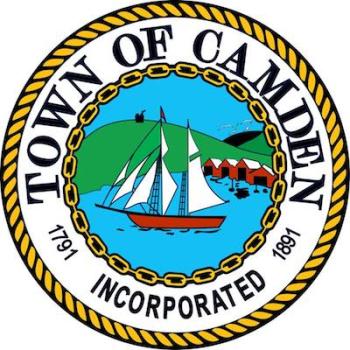Camden to discuss herbicide case; state conducting own investigation
CAMDEN — Tuesday evening, Dec. 13, the Camden Select Board will talk about the town’s violation notice sent to property owners alleging their responsibility for killing vegetation and trees on neighbor’s land with herbicide.
As of Dec. 12, the town had yet to know if Amelia and Arthur Bond, of St. Louis, Missouri, even received the notice of violation sent by certified mail Nov. 29. No return receipt had been received by the town from the U.S. Postal Service.
Meanwhile, Maine’s Department of Agriculture, Conservation and Forestry is conducting is own investigation.
“The Department has investigated the Camden complaint and collected samples,” said Jim Britt, Director of Communications at the Maine Department of Agriculture, Conservation and Forestry. “We’re currently waiting for lab results.”
In its violation notice, the town demanded that the Bonds provide, within five days of receipt of the mailed violation notice, a detailed description of the chemicals used and dates it was applied to vegetation on 3 Metcalf Road, property owned by Lisa Gorman, of Yarmouth.
Camden said that that caretakers of 3 Metcalf Road had noticed earlier in the fall that tree foliage was dying. They subsequently identified an herbicide in the leaves and soil, the town said in the violation notice, and determined the chemical makeup to Tebuthiuron 80 WWG, which has a trade name of Allagare.
The Bonds own the property at 1 Metcalf Road, abutting the Gorman property. The short Metcalf Road extends from Bay View Street toward the water and borders Laite Beach Park, a publicly-owned picnic, playground and swim area.
Camden got involved in the dispute between the neighbors Oct. 24, when the town’s code enforcement office received a call from Gorman’s attorney.
State law requires that some of those who apply or sell pesticides to first obtain a license, a prerequisite determined by the types of pesticides applied and the circumstances under which the pesticides are applied.
The Board of Pesticides Control has the responsibility for licensing applicators. The board is the state’s lead agency for pesticide oversight and is attached to DACF.
Camden does not have oversight of pesticide or herbicide applications on private property, but its land use ordinance regulate tree cutting in the shoreland zone, as does the Maine Department of Environmental Protection.
Camden said the Bonds violated two regulations of town ordinances: Cutting too close to the shoreline and clearing too much vegetation from the property.
“In this instance, more than 40 percent of the volume of trees 4 inches or more at diameter at breast height will need to be removed due to your egregious application of herbicide,” the notice said.
The Maine DEP has not responded to inquiries concerning the municipal complaint. A copy of the notice was sent to the state’s environmental agency.
In addition to its licensing and policy development duties, the Board of Pesticide Control also oversees consent agreements when enforcement action is taken by the state against unlicensed or unauthorized chemical applications.
Camden ordinance allows for an appeal period.
“The Bonds have a right to appeal the notice of violation, and I suspect we won’t do anything until that appeal period lapses,” said Planning and Development Director/Code Enforcement Officer Jeremy Martin.
Municipal code states: “The action of the Code Enforcement Officer in issuing a stop-work order, notices of violations, or similar notices, and the action of the Code Enforcement Officer in revoking building permits, shall be appealable to the Zoning Board of Appeals by an aggrieved person or party within 15 days after the date of receipt of notice of such action by the aggrieved person or party. “
Reach Editorial Director Lynda Clancy at lyndaclancy@penbaypilot.com; 207-706-6657



































